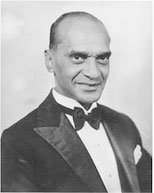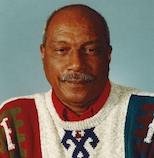Culture Corner: A Look at Black History Month in Bermuda, Celebrating Icons and Their Enduring Legacies
Black History Month, celebrated annually in February, honours the birthdays of Abraham Lincoln and Frederick Douglass, both pivotal figures in shaping black history. Lincoln's Emancipation Proclamation in 1863 played a crucial role in freeing slaves, while Douglass, a prominent anti-slavery advocate, informed Lincoln on black suffrage.
The month aims to recognize and celebrate Black contributions to society, spotlighting achievements despite historical racism. This year's theme, "African American People in the Arts," highlights artists like Henry Ossawa Tanner, Meta Vaux Warrick Fuller, and Clarissa Sligh, who made significant impacts on art and social justice.
Beyond global figures, notable Black Bermudians, such as Mary Prince and Dame Lois Browne-Evans, have left a lasting legacy. Prince, a Bermudian slave, authored the first book on the life of a black enslaved woman, while Dame Lois Browne-Evans, Bermuda's first female lawyer and Parliamentarian, dedicated her life to eliminating racial discrimination.
Black History Month serves as an opportunity for reflection, learning, and discussion on challenging inequalities, recognizing the enduring significance of historical figures worldwide and in Bermuda.
Dame Lois Browne- Evans [1927–2007]
First female lawyer in Bermuda;
First Black woman elected to Parliament;
Fought tirelessly for a more equitable society;
First female Opposition Leader in Bermuda and in the Commonwealth;
First female Attorney General;
A powerful orator who served in Parliament for 40 years.
Dr. Edgar Fitzgerald Gordon [1895–1955]
Physician who came to Bermuda from Trinidad in 1924;
Member of Parliament and founding father of the labour movement;
Considered one of the most important leaders of 20th Century Bermuda;
President of the Bermuda Workers Association, the forerunner of the Bermuda Industrial Union;
Made the BWA a force for social and political change through his dynamic leadership;
Author of the landmark 1946 BWA petition, which called for end to segregation and other injustices;
Championed the cause of blacks and Bermudian workers of both races.
Dr. Pauulu Kamarakafego [1932–2007]
Civil rights leader and political activist;
Played key role in the fight to abolish the property vote as founder of the Committee for Universal Adult Suffrage;
Ecological engineer;
Member of Parliament;
Worked in Vanuatu and other countries in the developing world;
Consultant to the United Nations;
First Recipient of the Human Rights Commission’s Human Rights Award.
Mary Prince [Born circa 1788 - after 1933]
Born into slavery in Devonshire;
Endured harsh treatment and abuse in Bermuda, Turks Island and Antigua;
Her groundbreaking autobiography, The History of Mary Prince, was published in London in 1831;
The first British woman to publish a slave narrative;
The narrative is the only first-hand account of slavery by a Bermudian;
Is regarded internationally as an unsung heroine of the abolition movement.
Sir Edward Trenton Richards [1908–1991]
Came to Bermuda from British Guiana in 1930 to teach at The Berkeley Institute;
Challenged segregation as editor of the Bermuda Recorder;
Fought to end social, racial and political injustice as a lawyer and Member of Parliament;
Bermuda’s first Black leader and Premier;
First black man in Bermuda to receive a knighthood;
Was Premier when the Island was rocked by the assassination of Governor Sir Richard Sharples;
Negotiated changes to the Constitution that led to new titles and names: Premier, MP and Cabinet.
Sir John W. Swan [Born 1935 - ]
The distinction of being the longest serving Premier of Bermuda;
Successfully completed the negotiations of the United States and Bermuda Tax Convention;
Negotiated a treaty between the United States and United Kingdom that would benefit Bermuda by establishing the Island as a major Offshore Financial Centre;
Founder of John W. Swan Agency, a real estate development, savings and loan company;
Helped to modernize the architectural landscape of the City of Hamilton;
A real estate developer, political luminary and philanthropist.
In conclusion, Black History Month stands as a poignant reminder of the indelible mark left by figures like Abraham Lincoln and Frederick Douglass, whose legacies continue to shape our understanding of equality and justice. By spotlighting the contributions of African Americans to various fields, from the arts to politics, and by acknowledging the resilience in the face of historical oppression, this month-long celebration serves not only as a tribute to the past but also as a call to action for a more inclusive and equitable future. As we reflect on the achievements of global icons and local heroes alike, we are reminded of the ongoing struggle for equality and the importance of amplifying marginalized voices in our collective narrative. Black History Month invites us all to engage in meaningful dialogue, learning, and advocacy, fostering a deeper understanding of our shared humanity and the imperative to confront systemic injustices head-on.
Read more about our JEDI Team initiatives here.







